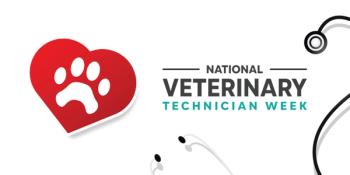
Malpractice disclosure triggers standoff
COLUMBIA, S.C. - Late legislative maneuvering stymied a South Carolina bill that would make complaints against veterinarians' public record.
COLUMBIA, S.C. — Late legislative maneuvering stymied a South Carolina bill that would make complaints against veterinarians' public record.
The stance, dubbed by some a filibuster, was led by Sen. Daniel Verdin to quash a bill that would make complaints against veterinarians public before the state's board of veterinary examiners ruled on a case. The legislation would allow for a preliminary investigation of a veterinary complaint before it was publically disclosed.
Verdin's actions caused the session to end, thereby killing legislation that was four years in the making. Supporters of the bill are betting it will be reintroduced in January as the Legislature reconvenes.
Survey Question Results
The board of examiners and South Carolina Association of Veterinarians (SCAV) back the measure.
"It has been almost 30 years since a significant change has been made to the practice act," says H. Kelley Jones, SCAV executive director. "It's time for the change."
Current practice has an Investigative Review Committee (IRC) comprised of retired board members and staff from the South Carolina Department of Labor, Licensing and Regulation (LLR) investigate complaints. The IRC compiles information on the complaint and reports to the board of examiners. If the board rules the complaint has merit based on IRC recommendations, they proceed with a hearing. At this point under the proposed bill, the veterinarian would receive a letter from the board and the complaint would be made public.
This is the section of the bill that those involved with the legislative process can agree to disagree. Verdin says practitioners will lose out with this process and should only be judged by a jury of their peers.
"The Investigative Review Committee is not a jury of peers," Verdin says.
The problem is, the group that investigates cannot be the same that judicates, says Rep. Tom Dantzler, DVM, the only veterinarian in the General Assembly.
"The IRC are ex-veterinarians and know what is and is not appropriate," he says.
Dantzler shepherded the bill through the legislature and says he hopes it's reintroduced next January, unaltered from its current form.
"I like the bill the way it is," Dantzler says. "I think it is time to update our system and these changes should be made."
Dantzler says that of the years he was a practicing veterinarian, he never fully knew how disciplinary acts evolved .because he was never in the situation where he was called before the board.
"If you are a good veterinarian, you shouldn't have anything to worry about," Dantzler says. "I feel the board of examiners is doing a good job, and there is nothing to hide. There is a feeling from the consumer that these meetings are held in secret."
Marcia Rosenberg brought what she considers a flaw in veterinary legislation to light four years ago when her cat Pumpkin was improperly cared for by a local veterinarian during a routine spay. The veterinarian responsible for the procedure had his license suspended for one year with two years of probation and had many other complaints against him. The doctor also had his license suspended once before in Ohio for malpractice and gross incompetence, according to court documents, and is currently practicing in South Carolina.
"There is such a small amount of veterinarians who are not good at what they do," Rosenberg says. "The 1 percent who are bad should be exposed to allow consumers to know who they are trusting with their pets' lives."
"We looked at the process closer when Marcia Rosenberg brought the problem to the attention of the board of examiners and SCAV," Jones says. "She presented plenty of documents proving the consumer has little rights and is not kept informed in the decision making process."
South Carolina is not the first state to change the process in which cases are heard, Dantzler says.
Upon the request of Verdin, SCAV conducted a survey of its members to get a better understanding of sentiment on the topic. Verdin's analogy of the survey says veterinarians are against the practice act change, where the SCAV and the board of examiners say their members are in favor of the change and only opposed to a couple of the survey's questions.
"I would think the SCAV would do what their members ask, which is to not support this bill," Verdin says. "But they are allowing media and possibly disgruntled clients or workers decide their stance on the issue."
Dr. Claude Schumpert, chair of the South Carolina Board of Veterinary Medical Examiners, says of the 17 states surveyed in a confidentiality issues information poll, 12 already have an open process.
"We're not plowing new ground; other states are already more public with their process, Texas being one of them," Dantzler says.
Verdin, whose father is a practicing veterinarian in the state, says not many members of the General Assembly are tuned into veterinary law and might not understand how this change of practice will affect practitioners.
"When there are 4,000 pieces of legislation to look at and there are only two members of the General Assembly (Dantzler and Verdin) who are familiar with the way veterinary law works, practice acts may be passed without being in the majority's best interest," Verdin says.
The last time South Carolina had a significant change to the practice act, was 1976, Schumpert adds.
"The new bill would do more than enough to protect veterinarians," Schumpert says. "Board members are not allowed to be investigator and judicator, that is why an IRC is put in place."
In addition to retired board members and LLC, a state appointed attorney is also on the review board.
"Only about 10 percent of all investigations are followed up with a hearing," Schumpert says. "This isn't going to change anything except for the point at which the information would become public."
Verdin says the veterinary association and veterinary examining board should look at the survey and see that veterinarians do not want the bill to pass in its current form.
Schumpert replies to the comment by saying Verdin is only considering a couple of the questions asked on the survey and not looking at it as a whole.
"Consumers are not having more say than the professional," Schumpert says. "This is not the worst thing that has happened to veterinary medicine in our state by a long shot."
Schumpert says he would like to have an open forum to lay everything on the table, where anyone who wanted could attend to discuss the bill and prepare for its introduction in the Legislature next year.
Dr. Daniel Verdin, senator Verdin's father, describes the bill as outrageous and says he does not see other veterinarians in the state agreeing with the bill, either.
The Greater Greenville Veterinary Medical Association of Simpsonville, S.C., voted to support the revisions to the proposed practice act, with 18 votes for the act, five against and three abstaining from the vote.
To obtain a copy of the entire practice act, visit
Newsletter
From exam room tips to practice management insights, get trusted veterinary news delivered straight to your inbox—subscribe to dvm360.






